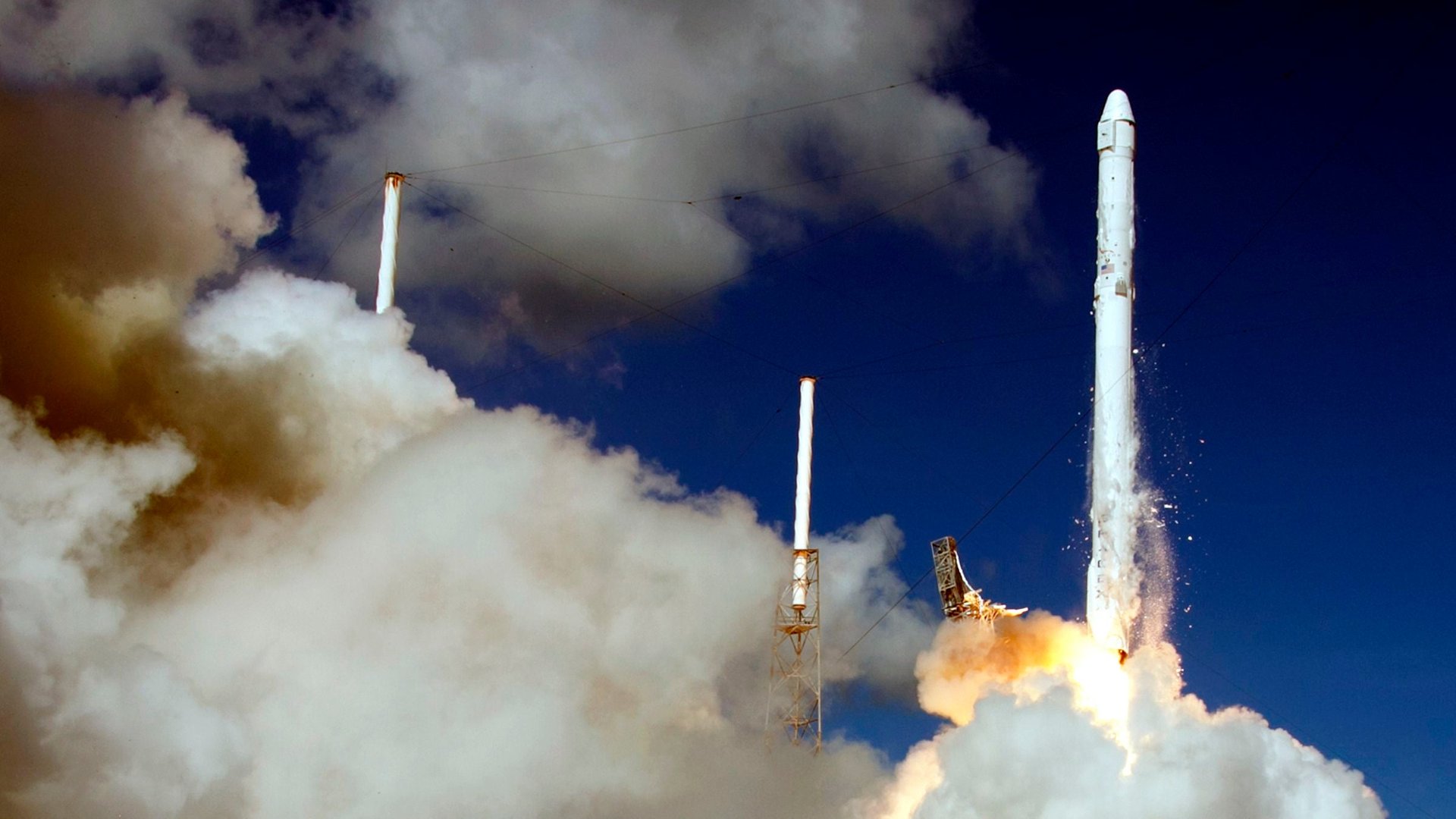Elon Musk says SpaceX’s latest rocket exploded after a single strut snapped
A steel strut holding a helium bottle inside a SpaceX Falcon 9 rocket snapped during flight, setting off a chain reaction that destroyed the rocket, the company’s CEO and chief rocket designer Elon Musk said.


A steel strut holding a helium bottle inside a SpaceX Falcon 9 rocket snapped during flight, setting off a chain reaction that destroyed the rocket, the company’s CEO and chief rocket designer Elon Musk said.
“One of those struts failed and was unable to hold the helium bottle down, and the helium bottle would have shot to the top of the tank at high speed,” Musk said in a call with reporters today, characterizing his analysis as an “initial assessment” that is highly probable but not definitive.
Fixing the problem will delay the SpaceX’s launch schedule by at least a month, with no new flights until at least September. The company had previously scheduled its next flight is in early August. Musk says the delays will mean hundreds of millions of dollars in lost revenue.
The helium bottles are stored within the liquid oxygen fuel tank to sustain pressure as the fuel is consumed during flight. Pre-flight tests apparently missed the flaw in the strut because the stress increases at higher g-force pressure. Musk said that after the crash, SpaceX tested thousands of struts from the supplier that made them, and discovered several that failed below their rated tolerances.
“Obviously, what we’re going to do in the future is not use these particular struts, and we’re going to move to individually testing each strut independent of any material certifications,” Musk said. “There will be some cost increase to the rocket, and not we believe to a significant amount.”
The June 28 launch at Cape Canaveral—the 18th in what was then an uninterrupted series of successful flights by the Falcon 9 rocket—was supposed to bring supplies and research materials to the International Space Station, but ended in an explosive deconstruction after two minutes of flight.
On July 5, Musk announced that he would have answers within the week, but no announcement was forthcoming until the company invited reporters to today’s press conference.
Figuring out what went wrong is a make or break task for SpaceX. Beyond the cost of the $60 million rocket and four tons of supplies, the Falcon 9 is the company’s work-horse product. Some $7 billion in revenue is at stake from 50 scheduled missions set to use the rocket.
SpaceX has a contract to lift an ocean-studying satellite on behalf of a joint EU-US mission in August; neither the company nor the partners has commented on whether the mission will go forward as planned. Nearly every major satellite company is counting on SpaceX to put satellites into space within the next year, including Iridium, SES, Eutelsat, and Orbcomm.
SpaceX’s low cost and high speed attracted these clients, but if it cannot quickly repair the fault, the company may be in trouble, although alternative options for its clients are limited: The latest generation of Russian rockets has proven unreliable, and flight schedules are packed at major launch companies like like Arianespace and United Launch Alliance, a joint venture of Lockheed Martin and Boeing.
NASA, which hired SpaceX to bring supplies to ISS, is also facing a conundrum. Its two commercial partners, SpaceX and Orbital ATK, have both experienced mission failures in the last year, even as one Russian mission went wrong in the spring, putting ISS within a month of tapping its food reserves. A different Russian mission successfully re-supplied the station earlier in July.
“This is the first time we’ve had a failure in seven years,” Musk said. “I think to some degree, the company as a whole became maybe a little bit complacent after twenty successes in a row.”